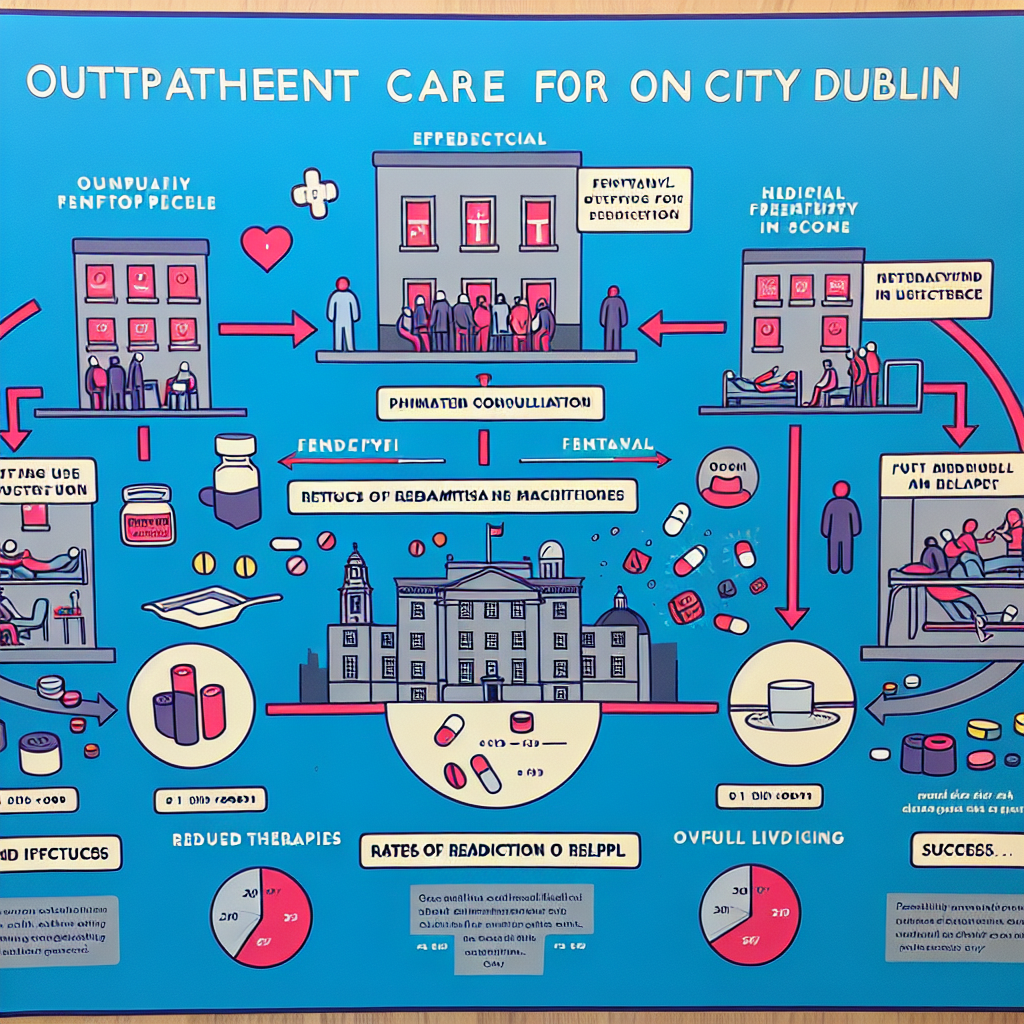-
Table of Contents
“Find Peace Within: Mindfulness Practices for Fentanyl Addiction Recovery”
Introduction

Mindfulness practices have emerged as a powerful tool in the recovery process for individuals battling fentanyl addiction. These practices, which include techniques such as meditation, deep breathing exercises, and mindful movement, focus on cultivating a heightened awareness of the present moment. By fostering a non-judgmental and compassionate attitude towards one’s thoughts and feelings, mindfulness can help individuals manage cravings, reduce stress, and improve emotional regulation. Integrating mindfulness into addiction recovery programs offers a holistic approach that addresses both the psychological and physiological aspects of addiction, promoting long-term sobriety and overall well-being.
Benefits Of Mindfulness Meditation In Fentanyl Addiction Recovery
Mindfulness meditation has emerged as a powerful tool in the recovery process for individuals battling fentanyl addiction. This practice, rooted in ancient traditions, involves focusing one’s attention on the present moment while calmly acknowledging and accepting one’s feelings, thoughts, and bodily sensations. The benefits of mindfulness meditation in fentanyl addiction recovery are multifaceted, offering both psychological and physiological advantages that can significantly enhance the journey to sobriety.
One of the primary benefits of mindfulness meditation is its ability to reduce stress and anxiety, which are often heightened during the recovery process. Fentanyl, a potent synthetic opioid, can create intense physical and psychological dependencies. When individuals attempt to break free from this addiction, they frequently experience withdrawal symptoms that can be overwhelming. Mindfulness meditation helps to mitigate these symptoms by promoting a state of relaxation and calm. By focusing on the present moment, individuals can learn to manage their stress and anxiety more effectively, reducing the likelihood of relapse.
Moreover, mindfulness meditation fosters emotional regulation, which is crucial for those recovering from fentanyl addiction. Addiction often stems from an inability to cope with negative emotions, leading individuals to seek solace in substances. Through mindfulness practices, individuals can develop a greater awareness of their emotional states and learn to respond to them in healthier ways. This heightened emotional intelligence enables them to recognize triggers and cravings without succumbing to them, thereby strengthening their resolve to stay sober.
In addition to emotional regulation, mindfulness meditation enhances self-awareness and self-compassion. Recovery from fentanyl addiction is a challenging journey that requires individuals to confront their past behaviors and make significant lifestyle changes. This process can be fraught with guilt and self-criticism. Mindfulness meditation encourages a non-judgmental attitude towards oneself, fostering self-compassion and acceptance. By cultivating a kinder relationship with themselves, individuals can build the resilience needed to navigate the ups and downs of recovery.
Furthermore, mindfulness meditation has been shown to improve cognitive function, which can be impaired by prolonged fentanyl use. Chronic opioid use can lead to deficits in attention, memory, and executive function. Mindfulness practices, however, have been found to enhance cognitive abilities by promoting neuroplasticity—the brain’s ability to reorganize itself by forming new neural connections. This cognitive improvement can aid individuals in making better decisions, solving problems more effectively, and maintaining focus on their recovery goals.
Another significant benefit of mindfulness meditation is its impact on physical health. Fentanyl addiction can take a severe toll on the body, leading to various health issues. Mindfulness meditation has been linked to lower blood pressure, improved immune function, and reduced inflammation. These physiological benefits can help individuals recover more fully and maintain their overall well-being.
Incorporating mindfulness meditation into a comprehensive treatment plan can also provide a sense of community and support. Many mindfulness programs are conducted in group settings, allowing individuals to connect with others who are on similar journeys. This sense of shared experience can be incredibly empowering, providing a network of support that reinforces the commitment to recovery.
In conclusion, the benefits of mindfulness meditation in fentanyl addiction recovery are profound and far-reaching. By reducing stress and anxiety, fostering emotional regulation, enhancing self-awareness and self-compassion, improving cognitive function, and promoting physical health, mindfulness practices offer a holistic approach to overcoming addiction. As individuals embrace mindfulness meditation, they can find strength, resilience, and hope on their path to sobriety, ultimately leading to a more fulfilling and balanced life.
Mindful Breathing Techniques To Combat Cravings
Mindfulness Practices for Fentanyl Addiction Recovery
Mindful Breathing Techniques To Combat Cravings
In the journey of fentanyl addiction recovery, the path is often fraught with challenges, including intense cravings that can derail progress. However, integrating mindfulness practices, particularly mindful breathing techniques, can serve as a powerful tool to combat these cravings. By focusing on the present moment and cultivating a sense of inner calm, individuals can navigate the turbulent waters of addiction with greater resilience and clarity.
Mindful breathing, at its core, involves paying deliberate attention to the breath as it flows in and out of the body. This simple yet profound practice can anchor the mind, providing a refuge from the storm of cravings and emotional turmoil. When a craving arises, it often brings with it a sense of urgency and distress. By turning to mindful breathing, one can create a space between the craving and the response, allowing for a more measured and thoughtful reaction.
To begin, find a quiet and comfortable place to sit or lie down. Close your eyes and take a few deep breaths, inhaling through the nose and exhaling through the mouth. As you settle into a natural rhythm of breathing, direct your attention to the sensation of the breath entering and leaving your body. Notice the rise and fall of your chest or the feeling of air passing through your nostrils. If your mind begins to wander, gently guide it back to the breath without judgment.
This practice can be particularly effective when cravings strike. Instead of immediately reacting to the urge to use fentanyl, take a moment to focus on your breath. Inhale deeply, hold for a few seconds, and then exhale slowly. This deliberate act of breathing can help to calm the nervous system, reducing the intensity of the craving. Moreover, it provides a moment of pause, allowing you to reflect on the craving without being overwhelmed by it.
In addition to calming the mind, mindful breathing can also foster a greater awareness of the body. Cravings often manifest as physical sensations, such as tension in the muscles or a racing heart. By tuning into these sensations with a sense of curiosity and openness, you can begin to understand the underlying emotions driving the craving. This awareness can be empowering, as it allows you to address the root causes of your addiction rather than merely treating the symptoms.
Furthermore, incorporating mindful breathing into your daily routine can build a foundation of resilience. Regular practice can enhance your ability to remain present and centered, even in the face of stress and temptation. Over time, this can lead to a greater sense of control over your thoughts and actions, making it easier to resist the pull of fentanyl.
It is important to remember that mindfulness is not a quick fix but a lifelong practice. The benefits of mindful breathing will become more pronounced with consistent effort and patience. As you continue to cultivate this practice, you may find that your cravings become less frequent and less intense. Additionally, you may discover a newfound sense of peace and well-being that extends beyond your recovery journey.
In conclusion, mindful breathing techniques offer a valuable tool for those recovering from fentanyl addiction. By providing a means to combat cravings and fostering a deeper awareness of the body and mind, these practices can support long-term recovery and personal growth. Embrace the power of mindful breathing, and take each breath as a step towards a healthier, more fulfilling life.
Incorporating Yoga Into Your Recovery Routine
Incorporating yoga into your recovery routine can be a transformative experience, especially for those grappling with fentanyl addiction. This potent opioid has wreaked havoc on countless lives, making the journey to recovery both challenging and essential. However, the practice of yoga offers a holistic approach that can complement traditional treatment methods, providing physical, mental, and emotional benefits that are crucial for long-term recovery.
To begin with, yoga emphasizes the connection between the mind and body, which is often disrupted by substance abuse. Fentanyl addiction can lead to a disconnection from one’s own body, as the drug alters brain chemistry and numbs physical sensations. Through yoga, individuals can start to rebuild this connection. The physical postures, or asanas, help to increase body awareness and promote a sense of grounding. This is particularly important for those in recovery, as it helps them to become more attuned to their physical state and recognize the early signs of stress or discomfort that might otherwise lead to relapse.
Moreover, yoga incorporates breathing exercises, known as pranayama, which can be incredibly beneficial for those recovering from fentanyl addiction. These exercises help to regulate the nervous system, reducing anxiety and promoting a sense of calm. Given that anxiety and stress are common triggers for relapse, learning to manage these emotions through controlled breathing can be a powerful tool in one’s recovery arsenal. Additionally, the meditative aspects of yoga encourage mindfulness, allowing individuals to stay present and focused, rather than being overwhelmed by cravings or negative thoughts.
Transitioning from the physical and mental benefits, yoga also offers emotional healing. The practice encourages self-compassion and acceptance, which are often in short supply for those battling addiction. Fentanyl can leave individuals feeling ashamed or unworthy, but yoga teaches that everyone is deserving of love and respect, starting with oneself. This shift in mindset can be incredibly empowering, helping individuals to rebuild their self-esteem and develop a more positive outlook on life.
Furthermore, yoga fosters a sense of community, which is vital for those in recovery. Many yoga classes emphasize the importance of connection and support, creating a safe space where individuals can share their experiences and draw strength from one another. This sense of belonging can be a lifeline for those who feel isolated or misunderstood due to their addiction. By participating in a yoga community, individuals can find encouragement and inspiration from others who are also on the path to recovery.
In addition to these benefits, yoga can also serve as a healthy coping mechanism. When faced with the inevitable challenges and temptations of recovery, turning to yoga can provide a constructive outlet for stress and frustration. Instead of resorting to harmful behaviors, individuals can channel their energy into a practice that promotes healing and well-being. This not only aids in the recovery process but also helps to establish healthier habits and routines that can be sustained long-term.
In conclusion, incorporating yoga into your recovery routine offers a multifaceted approach to healing from fentanyl addiction. By fostering physical awareness, mental clarity, emotional resilience, and a sense of community, yoga provides invaluable support on the journey to recovery. Embracing this practice can help individuals to reconnect with themselves, manage their emotions, and build a foundation for a healthier, more fulfilling life.
The Role Of Mindfulness In Relapse Prevention
Mindfulness Practices for Fentanyl Addiction Recovery
The Role Of Mindfulness In Relapse Prevention
In the journey of fentanyl addiction recovery, the path to sustained sobriety is often fraught with challenges. One of the most significant hurdles is the risk of relapse, which can be triggered by various factors such as stress, emotional distress, or environmental cues. However, integrating mindfulness practices into the recovery process can play a pivotal role in relapse prevention, offering individuals a powerful tool to navigate the complexities of addiction.
Mindfulness, at its core, is the practice of being fully present in the moment, acknowledging thoughts, feelings, and sensations without judgment. This heightened state of awareness can be particularly beneficial for those recovering from fentanyl addiction, as it fosters a deeper understanding of one’s internal experiences and external triggers. By cultivating mindfulness, individuals can develop a greater sense of control over their reactions and impulses, which is crucial in preventing relapse.
One of the primary ways mindfulness aids in relapse prevention is by enhancing emotional regulation. Addiction often stems from an attempt to escape or numb painful emotions. Through mindfulness practices such as meditation, deep breathing, and body scans, individuals learn to observe their emotions without becoming overwhelmed by them. This non-reactive stance allows them to process feelings of anxiety, sadness, or anger in a healthy manner, reducing the likelihood of turning to fentanyl as a coping mechanism.
Moreover, mindfulness encourages a shift in perspective that can be transformative for those in recovery. Instead of viewing cravings and urges as insurmountable obstacles, mindfulness teaches individuals to see them as transient experiences that can be observed and managed. This shift in mindset can diminish the power of cravings, making it easier to resist the temptation to relapse. By recognizing that cravings are temporary and do not define their actions, individuals can maintain their commitment to sobriety.
In addition to emotional regulation and perspective shifts, mindfulness also promotes self-compassion, which is essential for long-term recovery. The journey to sobriety is often accompanied by feelings of guilt, shame, and self-criticism. Mindfulness practices encourage individuals to treat themselves with kindness and understanding, recognizing that setbacks are a natural part of the recovery process. This self-compassionate approach can alleviate the burden of negative self-judgment, fostering a more resilient and positive outlook on recovery.
Furthermore, mindfulness can enhance the effectiveness of other therapeutic interventions. For instance, when combined with cognitive-behavioral therapy (CBT), mindfulness can help individuals identify and challenge negative thought patterns more effectively. By being present and aware, they can catch automatic thoughts that may lead to relapse and reframe them in a more constructive manner. This synergy between mindfulness and traditional therapies can create a robust support system for individuals in recovery.
Incorporating mindfulness into daily routines does not require extensive time or resources. Simple practices such as mindful breathing, mindful walking, or even mindful eating can be seamlessly integrated into everyday life. These practices serve as constant reminders to stay present and grounded, reinforcing the skills needed to prevent relapse.
In conclusion, mindfulness practices offer a multifaceted approach to relapse prevention in fentanyl addiction recovery. By enhancing emotional regulation, shifting perspectives, promoting self-compassion, and complementing other therapies, mindfulness empowers individuals to navigate the challenges of recovery with greater resilience and clarity. As they cultivate mindfulness, they build a solid foundation for sustained sobriety, transforming their journey from one of struggle to one of empowerment and hope.
Q&A
1. **What is mindfulness in the context of addiction recovery?**
Mindfulness in addiction recovery involves practices that help individuals stay present and aware of their thoughts, feelings, and bodily sensations without judgment, aiding in managing cravings and emotional triggers.
2. **How can mindfulness help in fentanyl addiction recovery?**
Mindfulness can help by reducing stress, improving emotional regulation, and increasing awareness of triggers and cravings, which can lead to more effective coping strategies and a lower risk of relapse.
3. **What are some common mindfulness practices used in fentanyl addiction recovery?**
Common practices include meditation, deep breathing exercises, body scans, mindful walking, and mindful eating, all aimed at enhancing present-moment awareness and reducing automatic, addictive behaviors.
4. **Are there any studies supporting the effectiveness of mindfulness in addiction recovery?**
Yes, several studies have shown that mindfulness-based interventions can reduce substance use, decrease cravings, and improve psychological well-being, making them a valuable component of comprehensive addiction treatment programs.
Conclusion
Mindfulness practices, such as meditation, yoga, and mindful breathing, can be highly beneficial in fentanyl addiction recovery. These practices help individuals develop greater self-awareness, manage stress, and reduce cravings by promoting a non-judgmental awareness of the present moment. By fostering emotional regulation and resilience, mindfulness can support long-term recovery and improve overall well-being. Integrating mindfulness into a comprehensive treatment plan can enhance the effectiveness of traditional therapies and provide individuals with valuable tools for maintaining sobriety.



